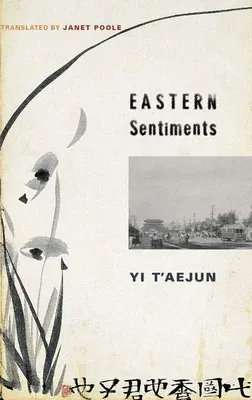The Confucian gentleman scholars of the Choson dynasty (1392-1910) often
published short anecdotes exemplifying their values and aesthetic
concerns. In modern Seoul one scholar in particular would excel at
adapting this style to a contemporary readership: Yi T'aejun.
Yi T'aejun was a prolific and influential writer of colonial Korea and
an acknowledged master of the short story and essay. He also wrote
numerous novels and was an influential editor of cultural news. Born in
northern Korea in 1904, Yi T'aejun settled in Seoul after a restless
youth that included several years of study in Japan. In 1946, he moved
to Soviet-occupied northern Korea, but by 1956, a purge of southern
communists forced him into exile. His subsequent whereabouts cannot be
confirmed, though rumors claim Yi returned to Pyongyang, only to be
exiled once more. It is believed Yi T'aejun passed away between 1960 and
1980, but his works were not made available until 1988, when South
Korean censorship laws concerning authors who had sided with the north
were eased.
The essays in this collection reflect Yi's distinct voice and lyrical
expression, revealing thoughts on a variety of subjects, from gardens to
immigrant villages in Manchuria, from antiques to colonial assimilation,
and from fishing to the recovery of Korea's past. Yi laments the passing
of tradition with keen sensibility yet, at the same time, celebrates
human perseverance in the face of loss and change. Most important, his
essays recount the author's attempt to re-experience the past and keep
it alive against absorption into the Japanese nation.
Janet Poole faithfully reproduces Yi's complex craft, retaining his
idiosyncratic tone and narrative. A brilliant introduction to a
remarkable prose stylist, Eastern Sentiments eloquently complicates
the historical, political, and aesthetic concerns of Orientalism.

